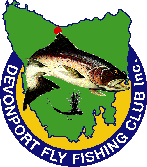

Bronte Fly Fishing School
Beginner Program
Proudly sponsored by:
This course is designed for the relative novice. The skill level of students usually varies quite widely but every effort is made to ensure that every student receives constructive attention, commensurate with his or her skill level.
Beginner Program Includes:
7. FLY SELECTION
Which Fly?
How to fish them
What they represent.
8. HOW TO PLAY AND LAND A FISH
Demonstration and practical exercise
Netting and Play of fish
Line control skills when playing fish.
9. READING LAKES
Choosing preferred areas of a lake
Fishing location and habitat
10. STREAM CRAFT
Reading a Stream
Finding Fish Locations
Locating possible food flows
11. NIGHT FISHING (Optional)
Safety Hints
Tackle set up
Fly Selection
Where and where not to fish
12 FISHING SESSIONS
Practical fishing time to observe others
Practice new techniques and skills.
1. WATER SAFETY AND BUSH HAZARDS AWARENESS
Compulsory for First Year Attendees
Discussion bush hazards and water safety
Wading safely (including demonstration)
2. TACKLE SELECTION
Clothing choice
Setting up tackle
Rod function and weight application
Line types and performance
Fly vests and what to carry
3. CASTING TECHNIQUES
Rod Action
Line Action
Analysis of the casting stroke
4. BASIC KNOTS AND LEADERS
Knot Tying
What Knots to use
Leader Function, Design and Construction
Types of leaders
5. FLY TYING (Optional)
Selection of tying materials
Insect imitations and general fly patterns
6. ENTOMOLOGY
The Trout Food ChainTerrestrial InsectsAquatic Insects
Novice Program proudly sponsored by:
The format of the course is relatively open. Attendees are not obliged to attend EVERY session (although ALL attendees are required to attend the Water Safety and Bush /Camp safety session on the first afternoon). Of an evening (or early in the morning), attendees are encouraged to go fishing to put their new found knowledge to work. In addition, experienced club members are on hand to take small groups (of two or three) on fishing excursions each evening. A record of the catch is kept.



